Family Went On A Camping Trip To A Remote Australian Island, But Were Suddenly Surrounded By Big Carnivorous Crabs
A family trying to have a camping barbecue on a picturesque Australian island encountered unexpected visitors – tens of huge robber crabs surrounded them. The vicious-looking animals, also known as coconut crabs, can reach three feet in length and possess a remarkable sense of smell.
As the unsuspecting family enjoyed their freshly cooked barbecue while camping on secluded Christmas Island, off Western Australia's far north-west, the crabs gathered around them in search of food. Despite their frightening appearance, the crabs are completely harmless, but, as their name indicates, they often steal food from campsites.
The family captured a series of fantastic photos, showing more than 52 crabs impatiently awaiting an opportunity to snag some leftovers.
Crabs eagerly await food.
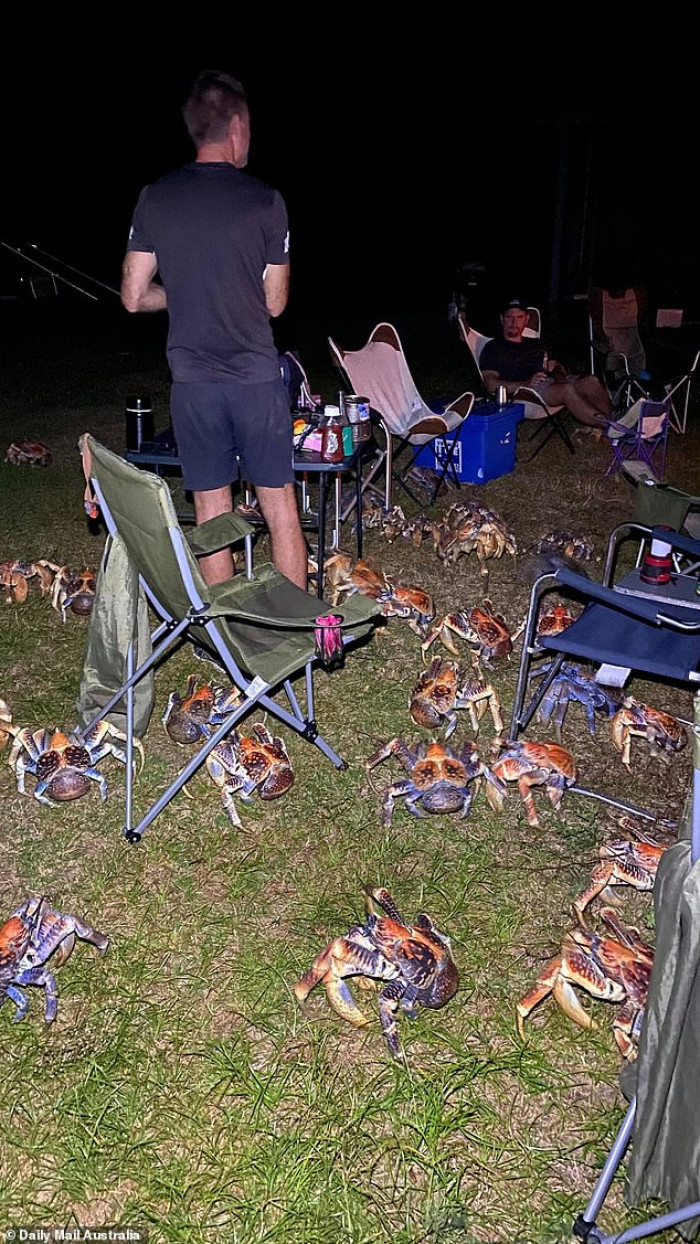
Winter McKendrick looked calm as the huge crabs surrounded her.
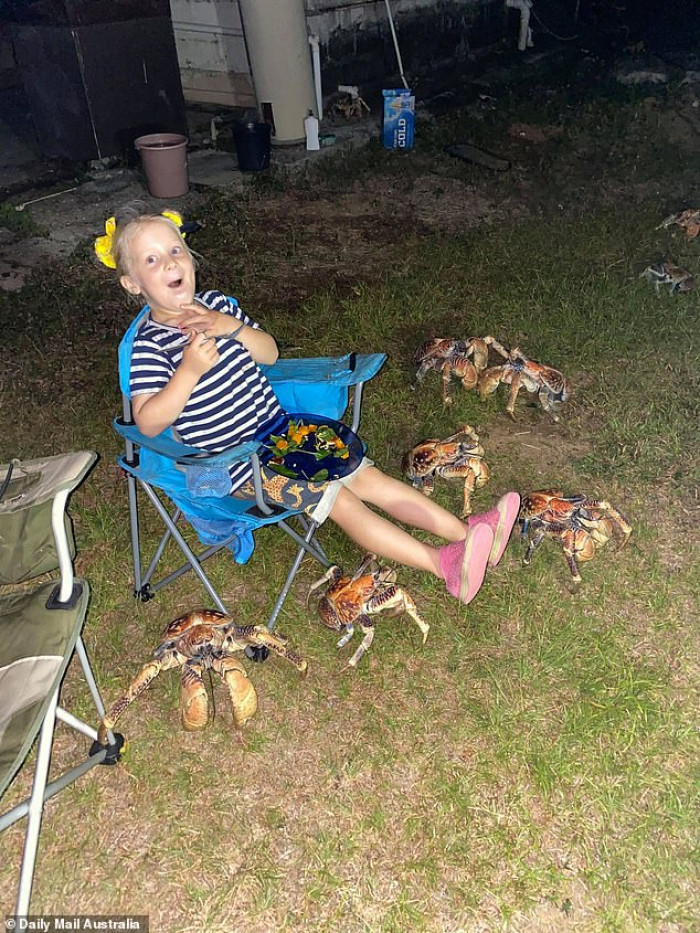
A camping trip barbecue became a struggle to keep 50 robber crabs away from food.
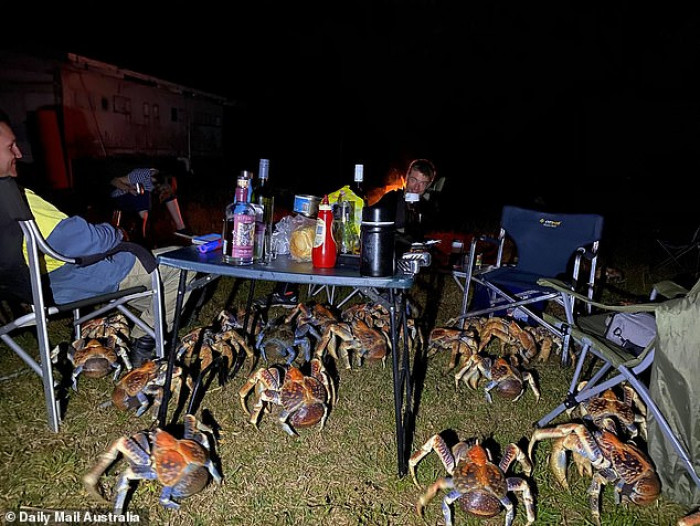
Winter McKendrick, a little girl from one of the other families on tour, appeared quite calm as the huge crabs surrounded her while she ate her supper. One courageous crab was photographed climbing the side of the table to gain better access to the food.
Amy Luetich had lived on Christmas Island for a few years with her family, and they were camping with a few other families in the jungle area of the island known as Grants Well. “We have camped in that area a few times, and we have never seen so many robber crabs,” Mrs. Luetich told reporters.
She mentioned that there were nearly 20 crabs under a tree when they arrived. “But as soon as we started cooking, they swarmed around us. My son counted 52 of them,” the deputy principal recounted.
One of the crabs scaled the table.
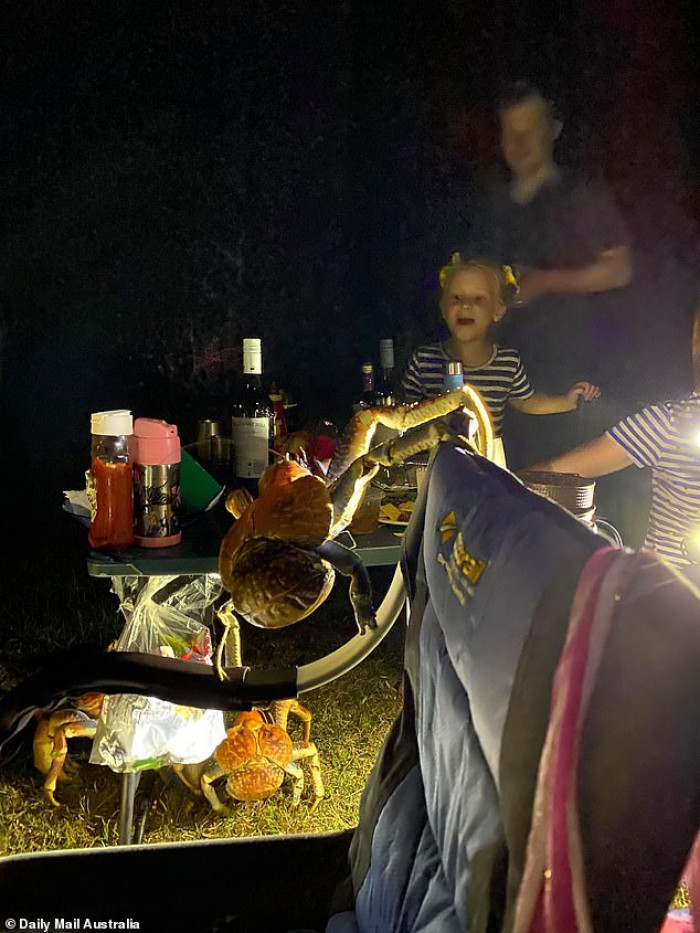
One of the crabs even climbed on top of the barbecue.
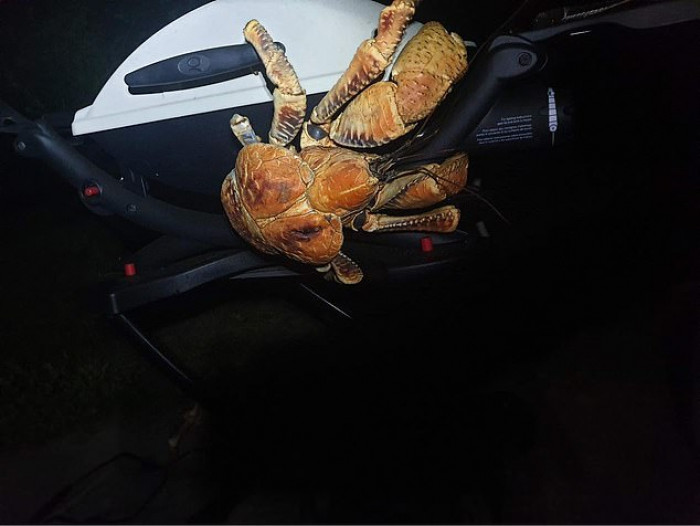
Robber crabs got their name because of their habit of stealing things from campsites.
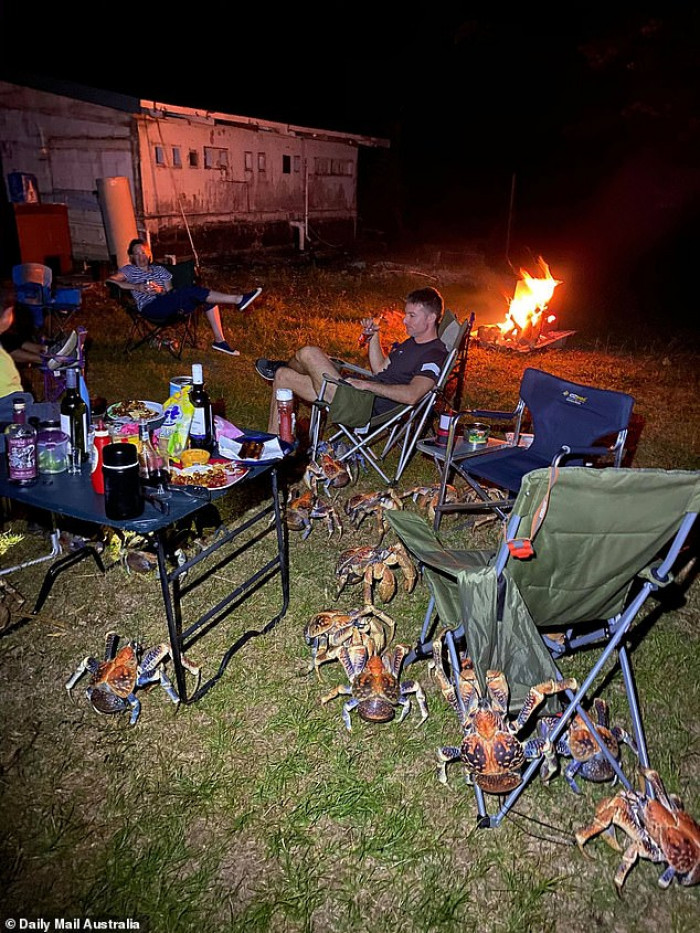
Jacob Tiernan-Luetich had an important job - he was assigned to keep the giant crabs away from food.

“His job was to pick them up and move them away from where we were eating. He was loving it.” She explained that they were used to seeing robber crabs because they had lived on Christmas Island for a while.
“Then they started to climb up to the table, and another climbed onto the barbecue,” Mrs. Luetich said. “We kept our tents away from where we had eaten, but one of the families reported that the whole night they could feel one tapping on the outside of their tent.”
The photos were shared on the Christmas Island tourism Facebook page, with a caption: "Robber crabs behaving badly! A couple of local Christmas Island families had a few extra mouths to feed at their BBQ over the weekend."
"Coconut crabs have an incredible sense of smell, and for slow-moving creatures, they sure move quickly when there's food around."
People soon began commenting on the post, with many sharing their own encounters.
"Lost a sneaker to these buggers one night. Couldn't find a one-legged robber crab," one person joked.
Another person said: "They are like puppies. We hung out on Dolly Beach, feeding them coconuts. So cute!"
However, some people weren't so thrilled with these crabs. "This makes me feel uncomfortable," one person commented.
Christmas Island is home to the largest population of robber crabs on Earth.
The robber crabs are tasty to eat, somewhere between a mud crab and a lobster. Although they are considered a delicacy with aphrodisiac traits across the Pacific Ocean, they are a protected species in Australia and cannot be hunted.
Visitors are warned that robber crabs can move quickly when they smell food. Tourists are advised to hang their food on a tree—especially on Dolly Beach.
Drivers are also asked not to drive fast, as they might run over a crab. Visitors are informed that robber crabs are "protected and respected" on this island.
Christmas Island is also home to 25 million red crabs.
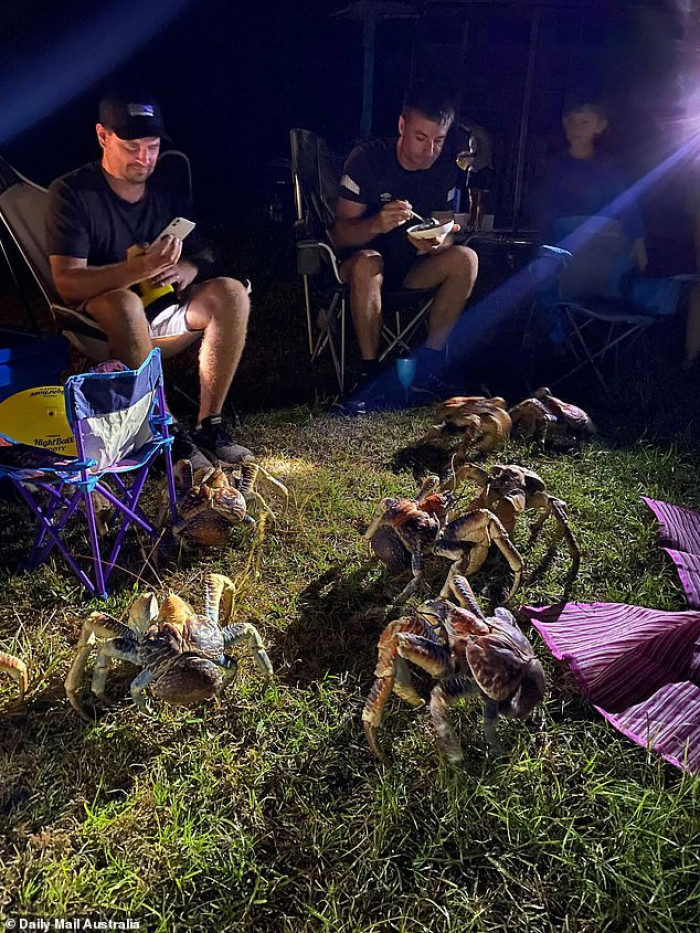
Robber crabs are the biggest land crustacean in the world.
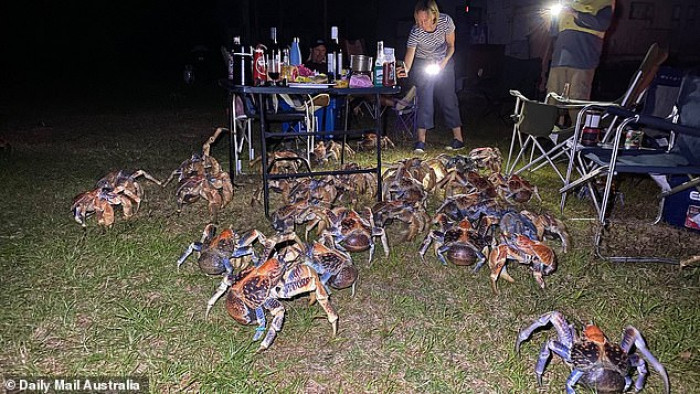
Singapore previously owned Christmas Island, but they transferred ownership to Australia in October 1958.
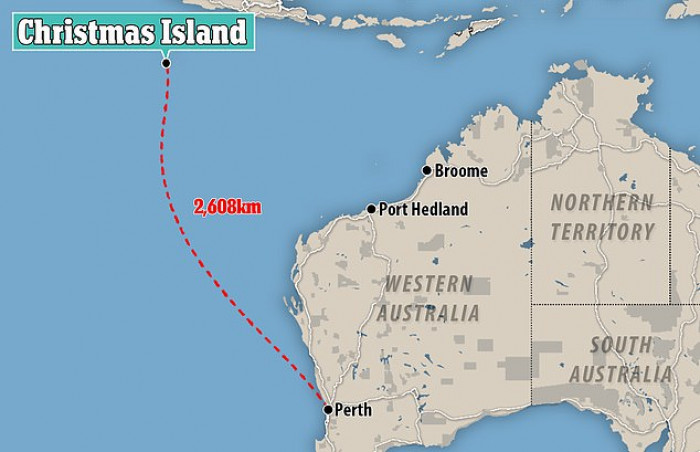
Singapore previously owned Christmas Island, but they transferred ownership to Australia in October 1958. Christmas Island is best known for its spectacular wildlife.
Twenty-five million red crabs inhabit the island. They remain on land until they migrate to the ocean to reproduce, after which the newborns return to land.
Another distinguishing feature of the island is the whale sharks that frequent the area.



